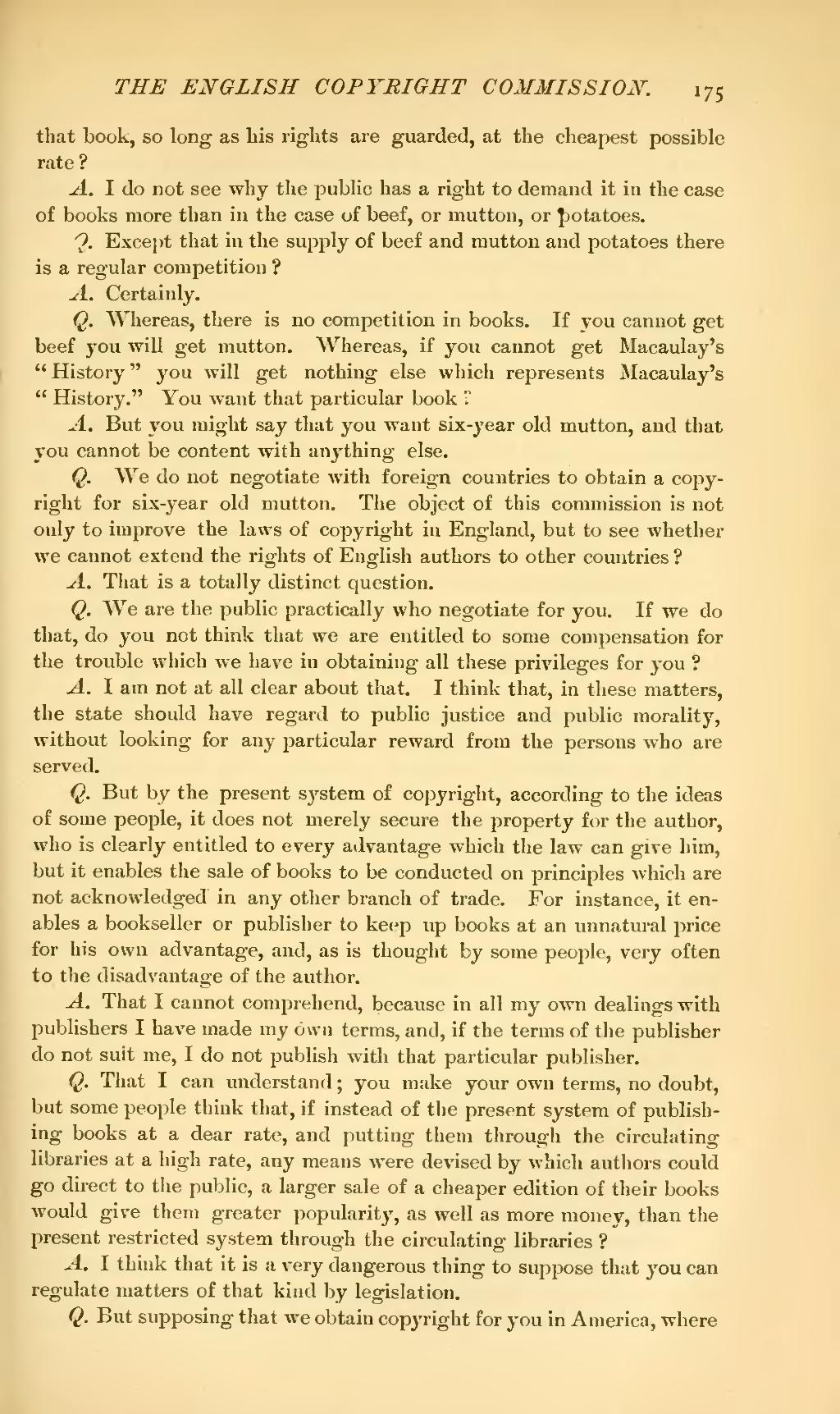that book, so long as his rights are guarded, at the cheapest possible rate?
A. I do not see why the public has a right to demand it in the case of books more than in the case of beef, or mutton, or potatoes.
Q. Except that in the supply of beef and mutton and potatoes there is a regular competition?
A. Certainly.
Q. Whereas, there is no competition in books. If you cannot get beef you will get mutton. Whereas, if you cannot get Macaulay's "History" you will get nothing else which represents Macaulay's "History." You want that particular book?
A. But you might say that you want six-year old mutton, and that you cannot be content with anything else.
Q. We do not negotiate with foreign countries to obtain a copyright for six-year old mutton. The object of this commission is not only to improve the laws of copyright in England, but to see whether we cannot extend the rights of English authors to other countries?
A. That is a totally distinct question.
Q. We are the public practically who negotiate for you. If we do that, do you not think that we are entitled to some compensation for the trouble which we have in obtaining all these privileges for you?
A. I am not at all clear about that. I think that, in these matters, the state should have regard to public justice and public morality, without looking for any particular reward from the persons who are served.
Q. But by the present system of copyright, according to the ideas of some people, it does not merely secure the property for the author, who is clearly entitled to every advantage which the law can give him, but it enables the sale of books to be conducted on principles which are not acknowledged in any other branch of trade. For instance, it enables a bookseller or publisher to keep up books at an unnatural price for his own advantage, and, as is thought by some people, very often to the disadvantage of the author.
A. That I cannot comprehend, because in all my own dealings with publishers I have made my own terms, and, if the terms of the publisher do not suit me, I do not publish with that particular publisher.
Q. That I can understand; you make your own terms, no doubt, but some people think that, if instead of the present system of publishing books at a dear rate, and putting them through the circulating libraries at a high rate, any means were devised by which authors could go direct to the public, a larger sale of a cheaper edition of their books would give them greater popularity, as well as more money, than the present restricted system through the circulating libraries?
A. I think that it is a very dangerous thing to suppose that you can regulate matters of that kind by legislation.
Q. But supposing that we obtain copyright for you in America, where
